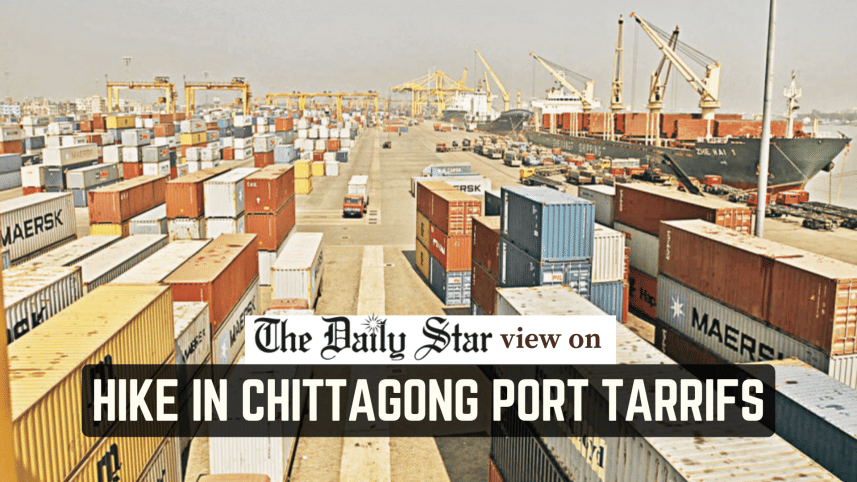Port tariff hike must be cost-based

A 41 percent hike in service charges at Chattogram Port is a deeply concerning move. Business leaders warn that it will significantly erode Bangladesh's competitiveness. At a time when the nation's vital export sector is already under strain from global headwinds and additional US tariffs, this precipitous increase—scheduled to be effective from October 15—is poised to make Chattogram the costliest port in the region. This comes as Bangladesh prepares to graduate from the Least Developed Country (LDC) category in November 2026. Business leaders in Chattogram have expressed frustration over what they view as the interim government's undue haste and lack of accountability in pushing through such a major policy shift. They argue that the move bypassed a fundamental prerequisite of sound economic governance: comprehensive consultation with all stakeholders.
Adding to the controversy is the business community's suspicion that the hike is strategically timed to pave the way for foreign operators—an allegation that demands immediate and transparent clarification. The issue of port profitability lies at the heart of this debate. As Salim Rahman, first vice-president of the Bangladesh Garment Manufacturers and Exporters Association (BGMEA), pointed out, the port has not incurred losses in recent memory. If the goal of the hike is not to recover costs but to maximise revenue, it risks distorting the market and undermining the principle that port charges must be cost-based. The government, therefore, owes the public a transparent cost-revenue analysis to justify this decision.
The immediate and most serious consequence will be the impact on Bangladesh's exports. The country's cost of doing business is already higher than that of regional competitors like Vietnam, India, and Malaysia. As the backbone of the economy, the port serves as the crucial artery for foreign trade, and a sharp increase in logistics and shipping charges will directly translate into higher prices for Bangladeshi goods, especially garments. This will inevitably make these products less attractive to international buyers. The warning from Nasir Uddin Chowdhury, former BGMEA first vice-president, that buyers will shift orders to competitor nations, is not hyperbole—it is economic reality. Frequent policy shifts only deepen uncertainty, raise costs, and make the business environment unpredictable—precisely when competitors are focused on cost reduction.
This tariff hike is, in essence, a direct tax on trade. The burden will not only fall on businesses but will also trickle down to consumers through inflation.
To prevent further damage, the government must immediately initiate a transparent, inclusive dialogue with all stakeholders. If an increase is deemed necessary, it should be incremental and marginal, as proposed by the Bangladesh Shipping Agents Association, which suggested a 10 percent cap, not a sudden, massive shock. Proceeding with such an ill-timed and ill-conceived hike risks undermining years of export-led growth. The government must prioritise the nation's global competitiveness over opportunistic revenue generation.



 For all latest news, follow The Daily Star's Google News channel.
For all latest news, follow The Daily Star's Google News channel.
Comments